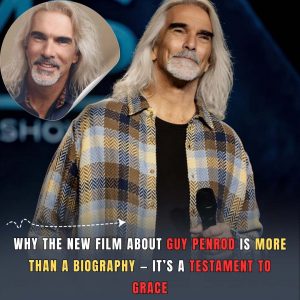OPINION: This article may contain commentary which reflects the author’s opinion.
In an era where fame can fade as quickly as a trending hashtag, few artists have managed to remain culturally vital for more than six decades. One of them is Sir Paul McCartney, whose influence continues to ripple across generations. And according to fellow crooner Michael Bublé, the legendary Beatle once distilled the entire secret to that longevity into a single, eight-word text message.
The Text That Said It All
When Michael Bublé reached out to Paul McCartney seeking advice on how to stay relevant and inspired in an ever-changing music industry, he didn’t expect a masterclass in simplicity.
McCartney’s reply came swiftly:
“Just one rule: Don’t get bored. You’ll bore others.”
It was direct, almost startling in its brevity—especially coming from a man whose songwriting has filled volumes of music history. Yet, as Bublé later shared in interviews, those eight words hit harder than any lengthy lecture could have.

A Rule for Life, Not Just Music
At first glance, McCartney’s advice seems like a quip. But beneath its casual tone lies a creative philosophy that explains how he has remained both timeless and endlessly curious since The Beatles first took the stage in the early 1960s.
“Don’t get bored.”
For McCartney, the foundation of lasting artistry lies in self-renewal. The moment an artist—or anyone, for that matter—loses excitement for their craft, the spark that drives innovation fades. Whether it’s writing a song, playing a familiar set, or stepping into the studio, he insists that enthusiasm must always come first.

“You’ll bore others.”
The second half of the message serves as both a warning and a truth. Audiences can sense when a performer is disengaged. For McCartney, who has constantly reinvented himself across rock, pop, classical, and experimental projects, maintaining genuine curiosity ensures that his work—and energy—never feel stale.
Bublé has since called the advice “life-changing,” noting that McCartney’s secret wasn’t about chasing trends or commercial success, but about staying emotionally connected to the art itself.
A Friendship Built on Music and Mutual Respect
McCartney’s mentorship of Bublé didn’t end with that text. The two artists later collaborated on Bublé’s 2022 album Higher, where McCartney co-produced Bublé’s rendition of “My Valentine,” a song originally penned by McCartney for his wife, Nancy Shevell.
Bublé recalled the session with awe, saying, “He’s exactly who you want him to be—kind, funny, and still completely in love with making music.” McCartney, ever the humorist, joked that he was surprised Bublé didn’t “boot me off the session” after he began offering vocal notes.
The collaboration became more than a meeting of two musical generations—it was a moment that bridged classic songwriting with modern crooner sophistication, united by McCartney’s guiding principle: to keep things fresh, honest, and alive.

Reinvention as a Career Philosophy
McCartney’s “rule” has defined his own path since The Beatles disbanded in 1970. Rather than resting on legacy, he explored new frontiers—forming Wings, experimenting with electronic music, collaborating with Kanye West and Rihanna, and even writing children’s books and classical compositions.
At every turn, McCartney’s creative curiosity has kept him—and his audience—fully engaged. His ability to evolve without losing authenticity remains one of the defining traits of his career.
The Lasting Lesson
Bublé has since shared McCartney’s message with younger artists, crediting it as a grounding philosophy amid the pressures of fame. In an industry obsessed with reinvention for reinvention’s sake, McCartney’s words serve as a reminder that staying relevant isn’t about constantly changing who you are—it’s about staying excited by what you do.
“If you’re not passionate about it,” Bublé reflected, “how can you expect anyone else to be?”
For a man whose career has shaped the sound of modern music, Paul McCartney’s advice is disarmingly simple. It’s not about legacy, awards, or longevity—it’s about joy.
And in just eight words, he managed to turn that joy into an eternal rule:
“Don’t get bored. You’ll bore others.”





